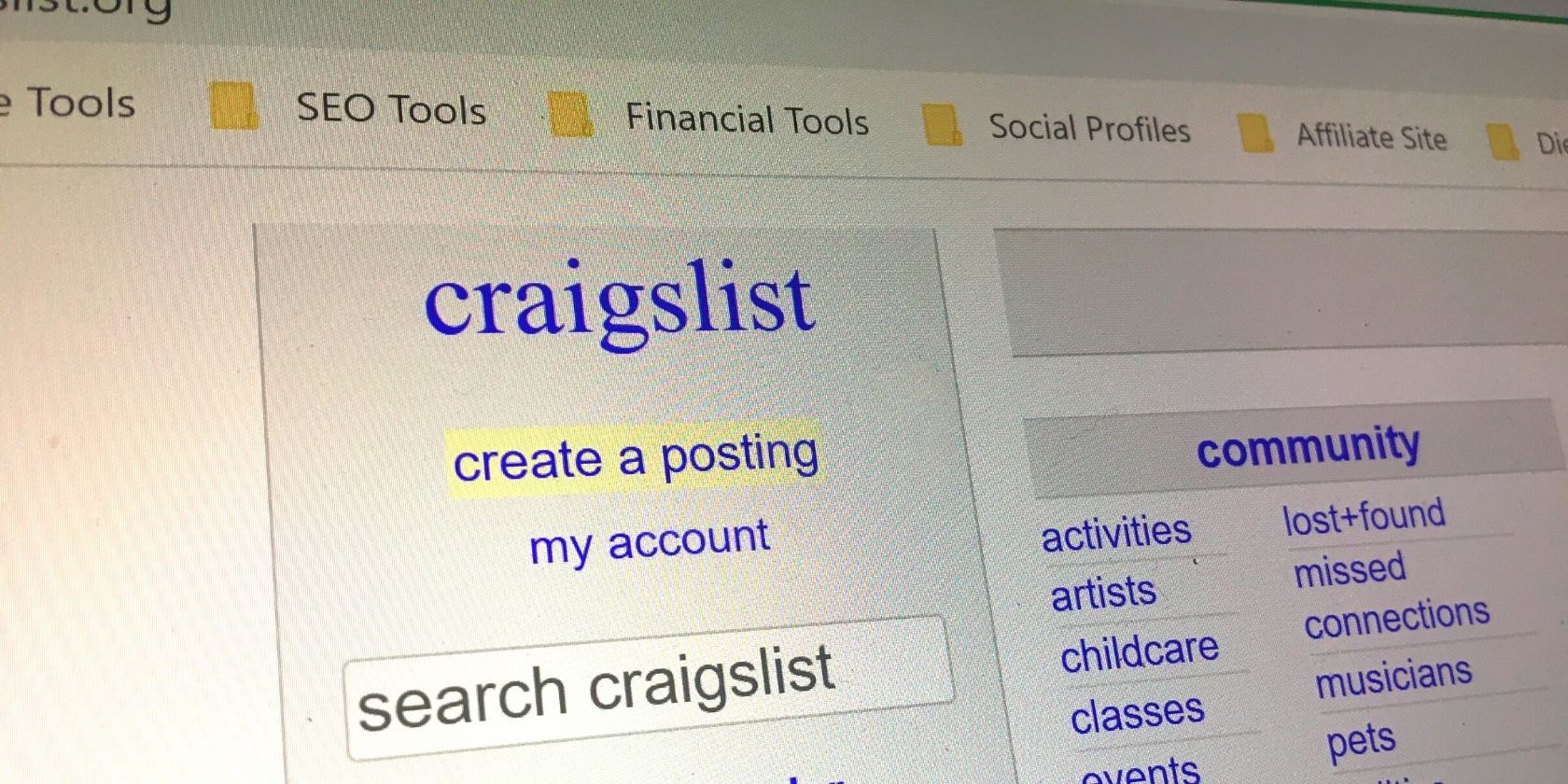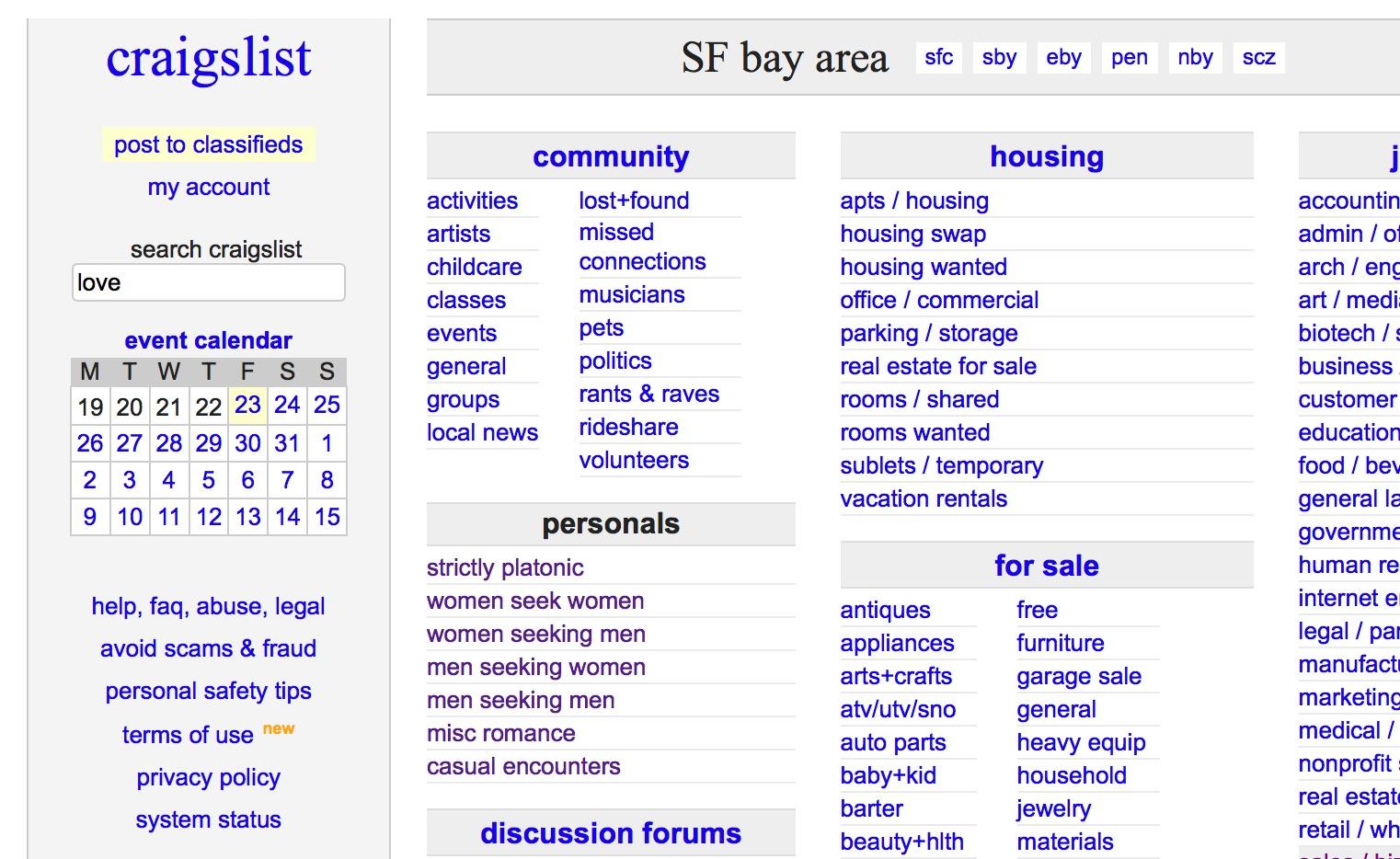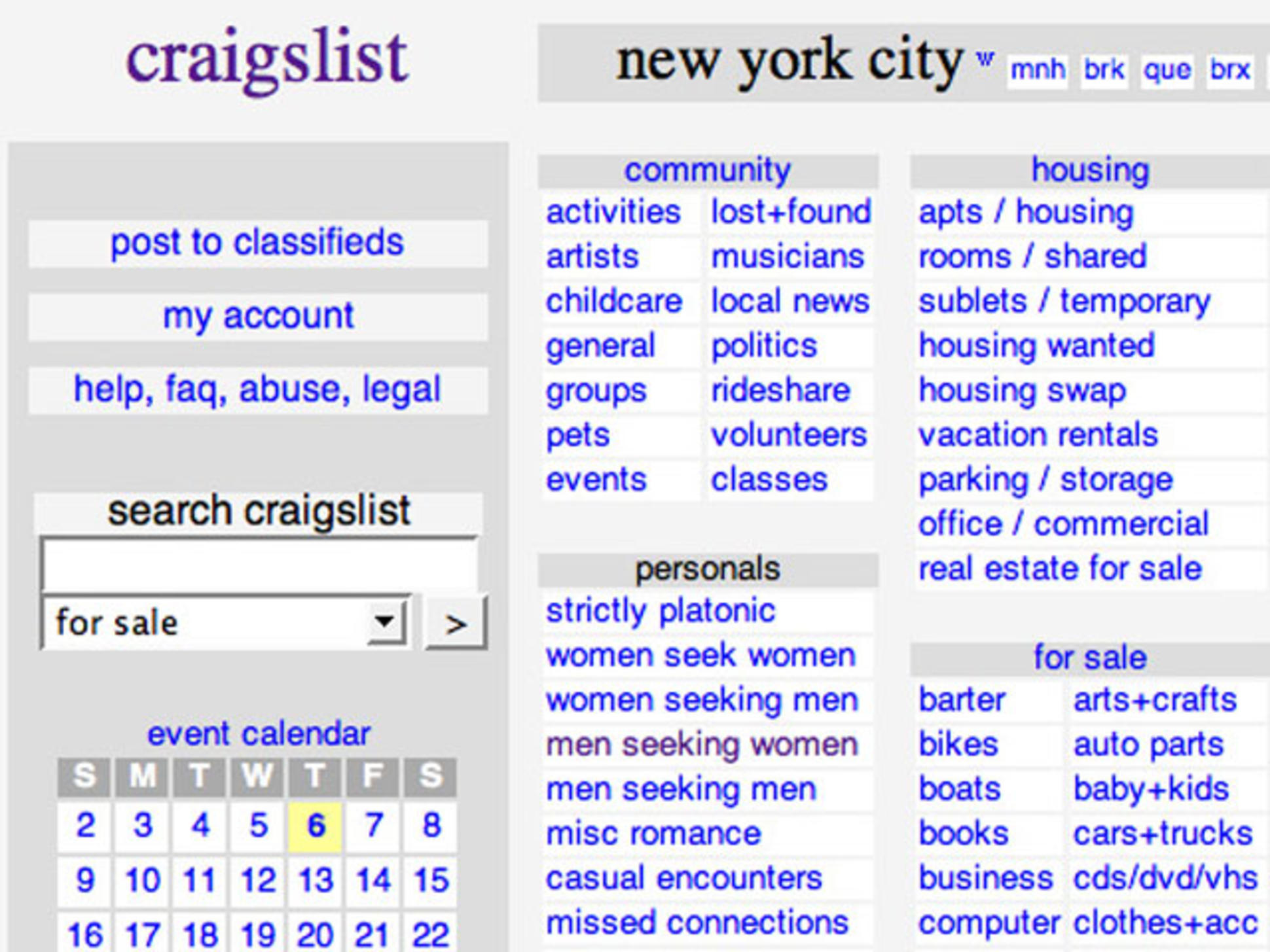Craigslist Free Car: Unearthing Your Next Project (or Parts Bin) cars.truckstrend.com
The concept of a "free car" often sounds like an urban legend or a clickbait headline. Yet, on the digital bustling marketplace that is Craigslist, the opportunity to acquire a vehicle for the princely sum of zero dollars is a tangible, albeit challenging, reality. The "Craigslist Free Car" isn’t a dedicated section; rather, it’s a pursuit, an act of sifting through listings, engaging with sellers, and understanding the nuances of what "free" truly entails in the automotive world. For the mechanically inclined, the budget-conscious, or simply those seeking an unconventional project, the allure of a free car on Craigslist is undeniable. It represents the ultimate low-entry point into vehicle ownership, a source of valuable parts, or even a pathway to learning fundamental automotive repair. This comprehensive guide will navigate the intriguing landscape of Craigslist’s free car offerings, equipping you with the knowledge to potentially unearth your next automotive adventure.
The Allure and Reality of the "Free Car"
Craigslist Free Car: Unearthing Your Next Project (or Parts Bin)
Why would anyone give away a car? The reasons are diverse, often stemming from practical challenges rather than pure altruism. Owners might be facing:
- Non-Running Vehicles: A car that won’t start, has major engine issues, or requires costly repairs often becomes a burden. Disposing of it can be expensive and time-consuming, making "free" a tempting solution.
- Space Constraints: An old, broken-down vehicle taking up driveway or garage space can be a significant nuisance, especially when moving or needing room for a new purchase.
- Title Issues: Sometimes, a car might be inherited, abandoned, or have lost its title, making legal sale difficult or impossible. Gifting it away sidesteps this bureaucratic hurdle.
- Avoidance of Junk Fees: Scrap yards sometimes charge for towing or accepting vehicles, particularly those without valuable components. Offering it for free transfers that cost to the taker.
- Environmental Responsibility (or lack thereof): Some owners prefer to see their old vehicle repurposed or salvaged rather than simply scrapped, even if it means giving it away.
- Minor Issues, Major Annoyance: A car might have a relatively simple fix that the owner lacks the time, tools, or inclination to address, making it seem like a "junk car" to them.

It’s crucial to understand that a "free car" is rarely a turn-key solution. More often than not, it’s a project car, a parts donor, or a vehicle that will require significant investment in time, money, or both, to become roadworthy. The true cost of a "free car" often lies in its hidden expenses.
Where to Look: Navigating Craigslist for Your Free Ride
Finding a free car on Craigslist requires a strategic approach, as there isn’t a dedicated "Free Cars" category. You’ll need to explore a few key sections and employ specific search tactics:
- "Free Stuff" Section: This is the most obvious starting point. People often post non-running vehicles here because they genuinely just want them gone. Be quick, as these listings disappear rapidly.
- "Cars & Trucks – By Owner" Section: While most listings here are for sale, use the price filters. Set the minimum price to $0 and the maximum to a very low amount (e.g., $1-$100). You might find listings where sellers are practically giving away a car, or listing it for a token amount just to filter out non-serious inquiries. Look for keywords like "junk," "parts car," "take away," "needs gone," "broken," "mechanic special," or "free to good home."
- "Materials" Section: Sometimes, people will list old vehicles as "scrap metal" or "materials" for repurposing. These are almost always non-running but could be a source of valuable parts.
- "Farm & Garden" Section: For older trucks, tractors, or utility vehicles, this section can sometimes yield results, especially in rural areas. Owners might be clearing out old equipment.


Search Strategy Tips:
- Keywords are King: Use a variety of terms like "free car," "junk car," "parts car," "needs towed," "take away," "broken car," "mechanic special," "no title," "project car," "as is."
- Check Frequently: New listings appear constantly. Set up email alerts if Craigslist offers them for your area, or make a habit of checking multiple times a day.
- Broaden Your Search Area: If possible, expand your geographic search radius. The further you’re willing to travel, the more options you’ll uncover.
The "How-To" Guide: Claiming Your Craigslist Free Car
Once you spot a promising listing, here’s how to proceed:
- Act Fast, But Be Prepared: Free items, especially cars, get snatched up quickly. Respond immediately, but ensure your message is clear and serious.
- Initial Contact: Send a concise, polite email or text (if a number is provided). Express your interest, state you understand the car’s condition (e.g., "I understand it’s a non-runner"), and ask about its availability and the best time to view it.
- Ask Key Questions Before Viewing:
- What exactly is wrong with it? (Be specific, e.g., "engine seized," "transmission gone," "no brakes.")
- Does it have a title? Is it clear? (This is CRITICAL. More on this below.)
- Where is it located? Is it accessible for towing?
- Why are you giving it away? (Helps gauge motivation.)
- When would you like it gone by?
- Viewing the Vehicle:
- Bring a Friend: For safety and an extra set of eyes.
- Assess the Condition: Don’t expect perfection. Look for rust, major body damage, missing parts, and interior condition. Try to start it if possible (even if it just clicks).
- Check the VIN: Verify it matches any title presented.
- Be Realistic: Understand this is a project. If you’re not prepared for significant work, walk away.
- Title Transfer: This is arguably the most important step.
- Clear Ideal scenario. Ensure the seller signs it over to you.
- Salvage Indicates a previous total loss. Can be registered, but might be difficult and often requires inspection.
- No This is a red flag. Acquiring a title for a vehicle without one can be a lengthy, expensive, or even impossible process, varying by state. Unless you’re certain it’s only for parts or scrap, or you know the specific local laws for bonded titles or abandoned vehicle procedures, avoid no-title vehicles for road use.
- Arranging Pickup:
- Towing is Likely: Assume the car will need to be towed. Factor this cost into your budget.
- Be Punctual: Show up on time with your towing solution.
- Get a Bill of Sale: Even for a free car, a simple bill of sale stating "as-is, no warranty, $0 cost" signed by both parties can be useful for your records.
What to Expect: Types of "Free" Cars You Might Find
The term "free car" covers a wide spectrum of automotive conditions:
- The True Junkers/Parts Cars: These are typically non-running, heavily damaged, or missing major components. They are ideal for salvaging specific parts, learning basic mechanics, or selling for scrap metal. Expect significant rust, flat tires, and a general state of disrepair. A clear title is still crucial if you plan to ever sell parts or the shell legally.
- The "Project Car" in Disguise: These cars might have a single, major issue (e.g., blown engine, bad transmission) that the owner doesn’t want to deal with. For someone with the skills, tools, and budget, this could be a rewarding restoration project. They might look decent cosmetically.
- The Rare "Diamond in the Rough": Extremely rare, but possible. These are vehicles that might be running but have minor, easily fixable issues (e.g., dead battery, flat tire, old gas, minor electrical glitch) or are simply old and the owner wants them gone quickly due to moving or lack of space. They still require due diligence and inspection.
Essential Considerations Before You "Claim" a Free Car
Beyond the immediate excitement, several practicalities demand your attention:
- Title and Ownership Legality: As stressed, a clear, transferable title in the seller’s name is paramount if you intend to register and drive the car. Without it, you’re essentially acquiring a large paperweight (or a parts bin). Research your state’s laws regarding abandoned vehicles, bonded titles, or title recovery processes if you consider a "no title" vehicle.
- Your Mechanical Aptitude & Resources: Be honest with yourself. Do you have the skills, tools, space, and time to tackle a potentially extensive repair job? If not, the "free" car will quickly become an expensive burden.
- Hidden Costs:
- Towing: Often the first and most immediate cost.
- Parts & Repairs: The biggest variable. Could range from a new battery to a full engine rebuild.
- Registration & Tags: Once repaired, you’ll need to pay these fees.
- Insurance: A must-have for any roadworthy vehicle.
- Disposal: If the project fails, you’ll need to pay to scrap it.
- Environmental Impact: Consider how you will dispose of fluids, old parts, or the car itself if it becomes unsalvageable. Be responsible.
- Safety: Always prioritize safety. A car with unknown mechanical issues can be dangerous if driven without proper inspection and repair.
Tips for Success and Avoiding Scams
- Communicate Clearly and Respectfully: Be polite and direct. Avoid haggling for a free item.
- Don’t Be Desperate: While acting fast is key, don’t let desperation blind you to red flags.
- Bring a Knowledgeable Friend: An extra pair of eyes, especially someone mechanically inclined, can be invaluable during inspection.
- Verify VIN and Ensure the VIN on the car matches the title, and check for any liens or salvage brands (if applicable).
- Beware of Scams: While less common for truly free items, be wary of anyone asking for money upfront (e.g., "holding fee"), requesting personal information beyond what’s necessary, or pressuring you. Meet in a public place if possible.
- Assume the Worst: Go into every "free car" viewing assuming it’s a complete junker that will require maximum effort. If it’s better, it’s a bonus.
Potential Costs and Value Associated with a "Free" Craigslist Car
While the acquisition cost is $0, the journey from "free" to "functional" (or profitable) often involves various expenses and potential returns.
| Item/Cost Category | Description | Estimated Cost/Value Range | Notes/Considerations |
|---|---|---|---|
| Towing/Transport | Cost to move the non-running vehicle from the seller’s location to yours. | $50 – $300+ | Varies by distance, vehicle size, and towing service. Essential initial cost. |
| Parts & Repairs | Engine, transmission, brakes, tires, electrical, body work, fluids, etc. | $100 – $5,000+ (highly variable) | The largest and most unpredictable expense. DIY saves labor costs. |
| Tools | If you don’t have them, you’ll need wrenches, jacks, stands, diagnostic tools. | $50 – $500+ (initial investment) | One-time investment for future projects. |
| Registration/Tags | State-mandated fees to legally operate the vehicle on public roads. | $50 – $200+ (annual) | Required once the car is roadworthy. Varies by state. |
| Insurance | Liability or full coverage for the vehicle. | $50 – $200+ (monthly) | Essential for legal operation. Quotes vary based on vehicle, driver, coverage. |
| Title Transfer Fees | Fees for transferring ownership and potentially obtaining a new title. | $10 – $100 | Varies by state. Crucial for legal ownership. |
| Disposal/Scrap Fee | If the project fails, cost to have a junk yard take the vehicle. | -$50 (you get paid) to $100 (you pay) | Some yards pay for scrap metal; others charge for removal of non-valuable cars. |
| Potential Resale Value | If repaired and made roadworthy, the car can be sold. | $500 – $5,000+ | Depends entirely on make, model, condition, and market demand. |
| Parts Sales Value | Selling individual components (engine, transmission, body panels, interior). | $50 – $1,000+ | If the car is used as a parts donor. Requires time and effort to dismantle. |
| Scrap Metal Value | Value of the vehicle’s metal if sold to a scrap yard. | $100 – $300 | Minimal, but a guaranteed return if the car is only good for scrap. |
Conclusion: The "Free Car" – A Rewarding Challenge
The "Craigslist Free Car" is a unique proposition. It’s rarely a shortcut to free transportation but rather an invitation to a project, a learning experience, or a source of valuable components. For those with mechanical aptitude, a realistic budget for repairs, and an understanding of the legalities involved, a "free" car from Craigslist can be incredibly rewarding. It fosters self-reliance, teaches valuable skills, and can ultimately lead to a surprisingly affordable mode of transport or a profitable venture. However, for the unprepared, it can quickly become a costly headache. Approach the search with enthusiasm, but temper it with pragmatism, diligence, and a clear understanding that "free" in the automotive world almost always comes with a price, just not the one you pay upfront.
Frequently Asked Questions (FAQ) about Craigslist Free Cars
Q1: Is it really possible to get a car for free on Craigslist?
A1: Yes, it is possible. People give away cars for various reasons, usually because they are non-running, old, or the owner simply wants them gone quickly to avoid disposal fees or clear space. However, these cars almost always require significant work and cost to become roadworthy.
Q2: What’s the biggest challenge with a "free car" from Craigslist?
A2: The biggest challenges are typically the car’s mechanical condition (it’s often non-running or has major issues) and, most importantly, obtaining a clear, transferable title. Without a title, registering the car can be impossible, limiting its use to parts or scrap.
Q3: Do "free cars" usually come with a title?
A3: It varies. Some do, and those are generally the best opportunities. Many, however, do not have a clear title, either because it’s lost, salvaged, or the car was abandoned. Always ask about the title first. Do not take a "no title" car unless you are absolutely certain you only want it for parts or scrap, or you fully understand your state’s specific laws for title recovery.
Q4: What hidden costs should I be aware of?
A4: The primary hidden costs include towing the car from the seller’s location, the cost of parts and repairs to make it run, and potentially registration, insurance, and disposal fees if the project fails. Always factor in these expenses.
Q5: How quickly do free car listings disappear?
A5: Very quickly. Free items on Craigslist, especially vehicles, are highly sought after. It’s common for a listing to be taken down within hours, or even minutes, of being posted. Act fast, but always do your due diligence.
Q6: Can I make money by getting a free car?
A6: Possibly, but it requires significant effort and skill. You could potentially repair it and sell it for a profit, or dismantle it and sell valuable parts individually. However, the time and financial investment in repairs often outweigh the potential profit unless you do all the work yourself and find parts cheaply.
Q7: Is it safe to meet someone from Craigslist for a free car?
A7: As with any Craigslist transaction, exercise caution. Meet in a well-lit, public place if possible (though for cars, it’s often at the seller’s property). Bring a friend for safety and an extra set of eyes. Never go alone at night.

